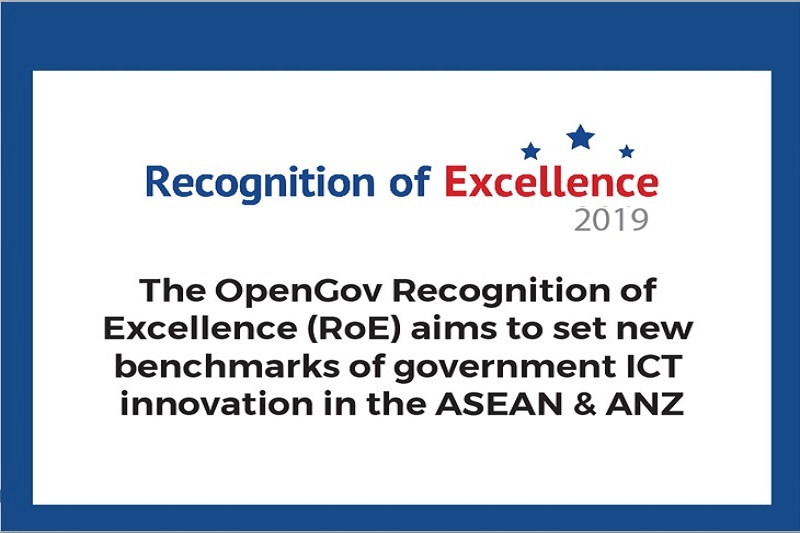
This is Part 1 of a four part series. See Part 2, Part 3 and Part 4 here.
Over 208 government officials and senior technology executives from across the Philippine government, academic institutions and healthcare organisations convened at the 3rd Philippine OpenGov Leadership Forum 2019 on 25 April 2019 at the New World Makati Hotel.
Held in conjunction with the Philippine OpenGov Leadership Forum, the OpenGov Recognition of Excellence (RoE) 2019 recognised and celebrated a total of 13 government agencies, academic institutions, organisations and a city from the Philippines for striving towards excellence in ICT strategies, policies and initiatives.
The annual OpenGov Recognition of Excellence (RoE) aims to set new benchmarks for government ICT innovation in the ASEAN and ANZ regions.
The Philippines has embarked on an exciting digital transformation journey, seeking to improve the lives of citizens through the use of digital technology. This year’s OpenGov Recognition of Excellence award winners are:
Ateneo de Manila University
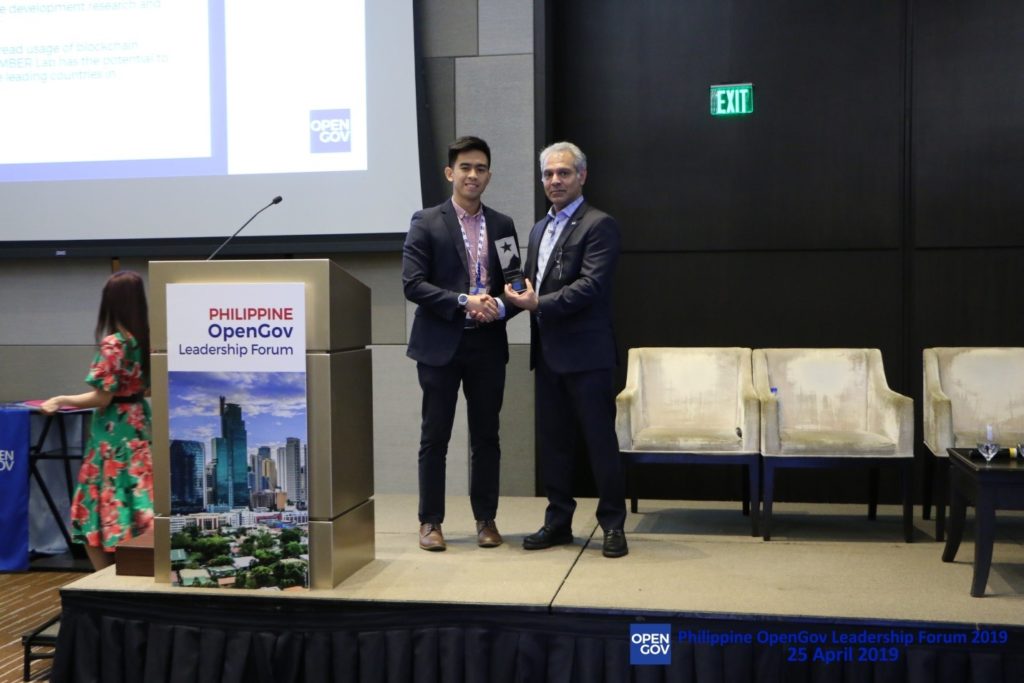
OpenGov is conferring the award to the Ateneo de Manila University (ADMU) for the launch of AMBERLab, which stands for Ateneo-MediXserve Blockchain Education and Research Laboratory.
AMBERLab is a joint initiatiave by MediXserve and the Ateneo de Manila University to support the development research and learning of blockchain technology.
As an initiative to develop widespread usage of blockchain technologies in the Philippines, AMBERLab has the potential to turn the Philippines into one of the leading countries in blockchain technologies.
Blockchain research is an untapped area, especially in developing economies like the Philippines, but when designed and managed well will best serve such economies.
AMBERLab has four areas of focus. These are research, education, incubation and community.
Ateneo is a university and research is part of what it does. The students get to work on real projects. These projects are tied with the current EMR services as well as eHealth innovations based on the needs of the community.
Born in August 2018, the Lab’s objective for its first year is really education.
Education is vital because before anyone can do the blockchain aspect of the project, they should have the necessary skills for it.
Incubation is the Lab’s way of giving back to the University. The R&Ds done can be made real with a little help. Incubating these projects means that they can stay within the institution until they become successful.
As for community, it is the area that wraps everything together. The reason behind why all of these are being done is to give back to the community.
Bureau of Customs
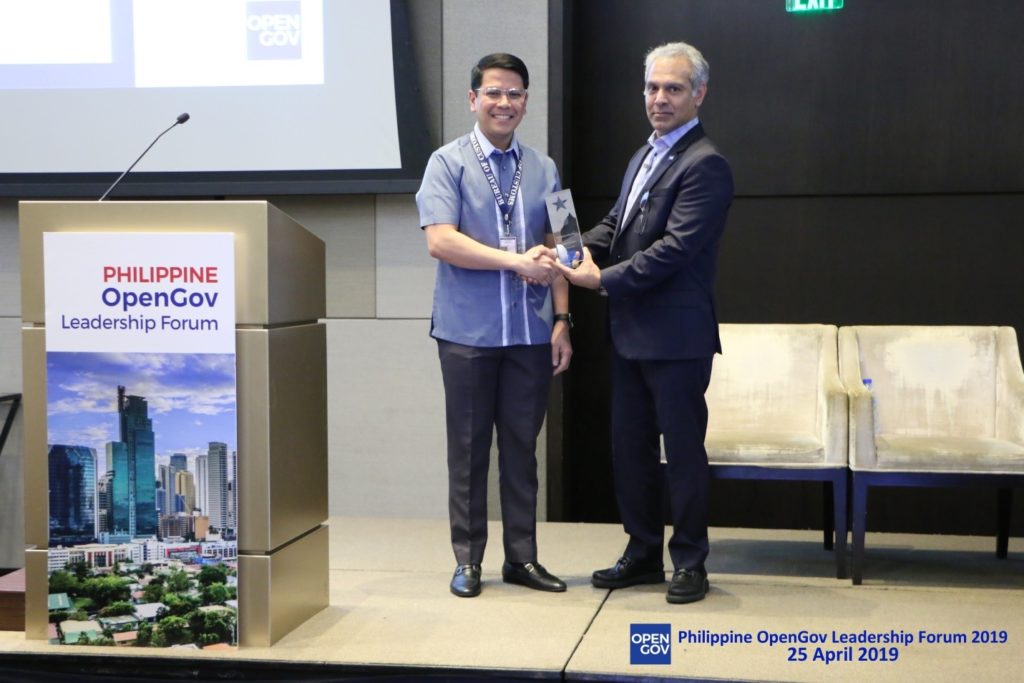
OpenGov is recognising the Bureau of Customs (BOC) for the launch of the 1-Assessment Goods Declaration Verification System (eGDVS).
1-Assessment is a modernised electronic system that processes and monitors import goods declaration. It operates with minimum human intervention in transaction between stakeholders and customs personnel.
There are three main objectives to the implementation of 1-ASSESSMENT. These are:
- To comply with RA 11032 or The Ease of Doing Business and Service Delivery Act
- To minimise corruption by institutionalising “Zero Contact”
- To track all transactional information, which include time of transaction, comments and request for additional information between customs officers and external stakeholders
The 1-ASSESSMENT system provides a bias-free assessment of goods by randomly assigning appraisers and examiners to each goods declaration.
It processes the goods on a first in, first out (FIFO) basis. Key performance indicators are measured based on speed of transaction.
By using the 1-Assessment system, the BOC hopes to eradicate corruption and usher in a new era of excellence that every Filipino can be proud of.
Bureau of Immigration
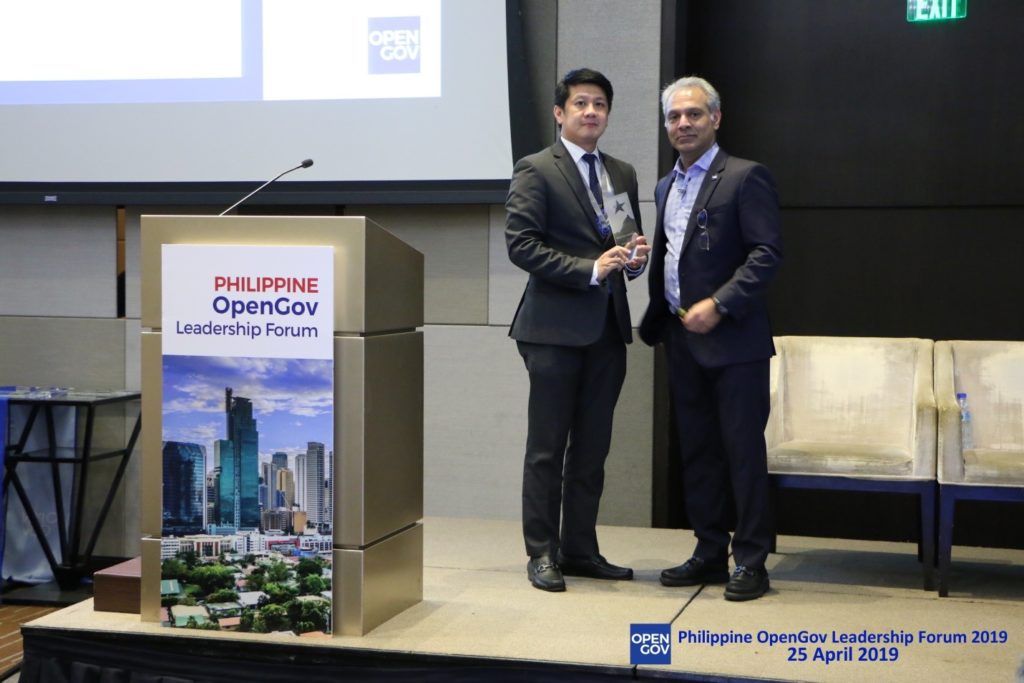
OpenGov is conferring the award to the Bureau of Immigration for its work in developing the E-Gate Facilities at six airports in the Philippines.
These electronic gates are to be used by Filipino travellers arriving from abroad. Only Filipino passengers with machine-readable passports may use the e-gates.
These e-gates are expected to enable fast traveling and accurate border clearing system while also eliminating errors in arrival verification.
Each e-gate is equipped with modern security features, including facial recognition, biometric scanning, bar code reading, and smart card recognition, all rolled into one.
From the average time of 45 seconds, the project was able to cut down the standard immigration processing time for every traveller to 8 – 15 seconds.
Not only does e-gate provide faster processing, but it also aims to strengthen the Bureau’s ability to pinpoint or detect travellers with derogatory record.
This covers wanted fugitives and those who are subjects of blacklists and hold departure orders.
This project really prioritises Filipinos, to guarantee their fast and smooth processing so they have more time to be with their families.
Department of Education, Internet and Mobile Marketing Association of the Philippines, Stairway Foundation
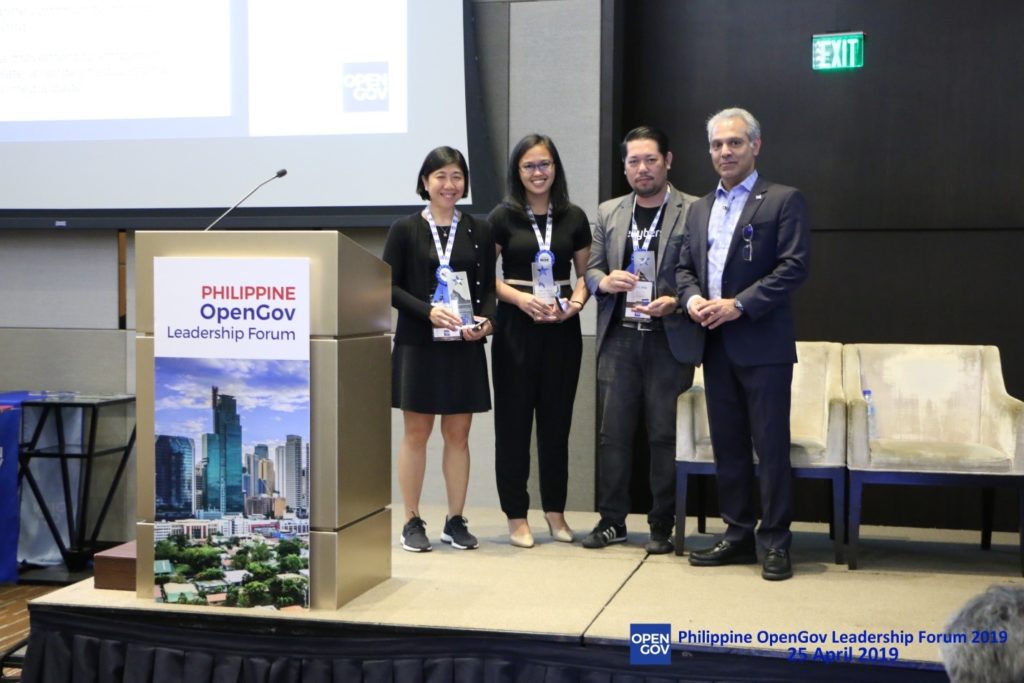
OpenGov is recognising the Department of Education (DepEd), Internet and Mobile Marketing Association of the Philippines (IMMAP), and the Stairway Foundation for the launch of the #BeCyberSafe Project.
The project aims to further educate the Filipino community on how children can remain safe in the cyber world.
There are 3 main components to the project: Project for Keeps, Dalir-Eskwela, and Chatbot.
Project for Keeps is the awareness raising component, wherein a short video on online friending was created to initially generate general public awareness on Cyber Safety.
The Dalir-Eskwela is the education component of the initiative, wherein 4 educational videos on CyberSafety were developed.
These videos tackled Cyberbullying, Online Gaming Addiction, Chatting and Self Generated Child Sexual Abuse Materials.
Chatbot, the component addressing the response portion, is still in the development and finalisation phase.
It aims to serve as an online reporting tool that children can access to report distressing situations they encounter online, such as online abuse or cyberbullying.
When completed, the chatbot will be turned over to the Department for ownership and management.
The awareness and educational materials, together with the CyberSafe lesson plans, are being promoted through a series of official DepEd national training of trainers on CyberSafety.
















